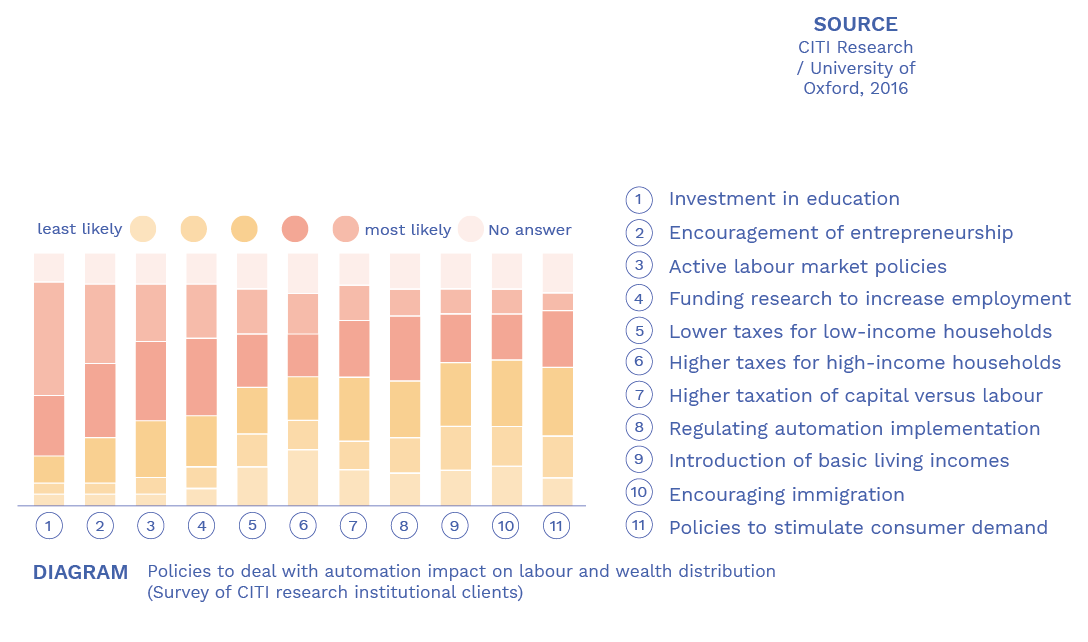THE FUTURE OF WORK
Work has become the most essential activity in shaping human lives. With the rise of the work centred lifestyle, society has developed a cultural obsession with work and productivity. Round-the-clock work, Sunday work emails and flexibility have all become conditions of a workforce that live further away from work, are less collectively organised and barely knows if they will ever retire. Incorporated in this formula is the main dominator, that all other factors are a result of, namely that digital technologies have blurred all boundaries between work and leisure.
Throughout history, work has taken a series of forms - always rearranging the relation between life and society. Work has been shifting continuously to different gradients of importance, quality and quantity, bringing with it different sets of unfixed relations between individuals. The succession of many forms of work over time shows that the role of work is not fixed. Can new scenarios be thought to actively shape new ways of work and to produce the material and immaterial world we live in?
Throughout history, work has taken a series of forms - always rearranging the relation between life and society. Work has been shifting continuously to different gradients of importance, quality and quantity, bringing with it different sets of unfixed relations between individuals. The succession of many forms of work over time shows that the role of work is not fixed. Can new scenarios be thought to actively shape new ways of work and to produce the material and immaterial world we live in?
Rising unemployment, automation, climate change and overwork are all issues that will inevitably put pressure on governments, businesses, unions and the individual to change the way work is produced in the future. How do we imagine those issues to be addressed in the future world of work? And most importantly, which kinds of relations and qualities do we want to see emerge in the future role of work in life and in society?
Current solutions, idealised by politicians and businesses, only providing limited options that often put too much emphasis on the responsibility of the individual in shaping its own future - removing all responsibility from the collective.
However, in order to deeply re-imagine the future of work, there’s a need to rethink it across scales and in relation to a complex set of issues. From an understanding of how global, territorial, regional and local factors defines the role of work, a new spatiality for the future of work can emerge.
Current solutions, idealised by politicians and businesses, only providing limited options that often put too much emphasis on the responsibility of the individual in shaping its own future - removing all responsibility from the collective.
However, in order to deeply re-imagine the future of work, there’s a need to rethink it across scales and in relation to a complex set of issues. From an understanding of how global, territorial, regional and local factors defines the role of work, a new spatiality for the future of work can emerge.
